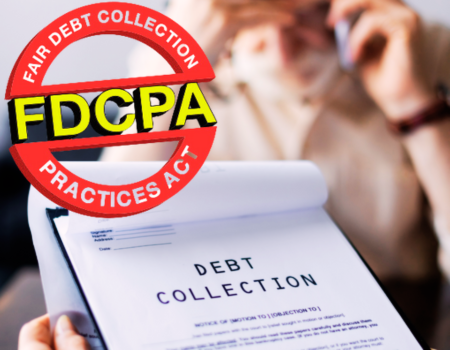Call us: +1-855-202-3299
Email: [email protected]
Complying with the Federal Debt Collection Practices Act
Speaker: Scott Transue
Speaker Designation: Tax Consultant - Quickbooks Trainer

Call us: +1-855-202-3299
Email: [email protected]
Speaker: Scott Transue
Speaker Designation: Tax Consultant - Quickbooks Trainer

Accounts Receivable can be a tremendous drain on a company’s finances. Many times, companies rely on recovering money owed to them to pay their own existing obligations. Traditionally, consumer debt collection has been highly regulated and many times, difficult to comply with legally. Business-to-business collection activity is far less regulated, but the best practices within consumer collections can often be very effective.
Your company's ability to successfully collect unpaid debts can make or break your business. However, navigating the laws intended to protect those clients and customers can be challenging. If the FDCPA is violated, the debtor can sue the debt collection company as well as the individual debt collector for damages and attorney fees.
This webinar will cover, in-depth, the Fair Debt Collections Practices Act (FDCPA) and the three major areas that even “veteran” debt collectors can have trouble with. We will also cover issues surrounding collection letters, training of staff, and techniques to get the debtor to “open up” to you. The goal of the webinar is to give the attendees ways to increase the collection of overdue money without violating the law.
Are you concerned that your company’s Accounts Receivable balance never seems to decrease substantially? Do you find yourself thinking there has to be a better way to collect overdue money?
If so, this webinar is for you.
Not only will you learn EXACTLY what you can and cannot do within consumer collections, but you’ll also gain some best practices that will turn your role from “debt collector” to “problem solver”. Using ethical psychological techniques, you’ll learn how to get the debtor to want to work with you, rather than avoid you. We will also cover business-to-business collections and the use of promissory notes.
The FDCPA provides critical protections for consumers against abusive debt collection practices, promoting transparency and fairness in debt collection activities. It also helps ensure that consumers are treated with dignity and respect, even when they owe money, and it empowers them to take action against unlawful collection practices. The law has been instrumental in shaping the ethical standards and legal boundaries within which debt collectors operate.

Scott Transue is an Enrolled Agent with the IRS, licensed to represent taxpayers in all 50 states. He is an award-winning speaker and trainer on taxation and debt collection. He is also a QuickBooks ProAdvisor. He has presented seminars on accounting topics throughout the country and coached over 3,000 people in improving their entity’s performance. He is a Remote Tax Advisor for TurboTax. He holds a Masters in Accounting from Walden University and Master of Public Administration degree from the State University of New York at Albany. His professional career has included time as commissioner of finance for the city of Gloversville, New York and as a senior accountant with the New York State Department of Environmental Conservation.